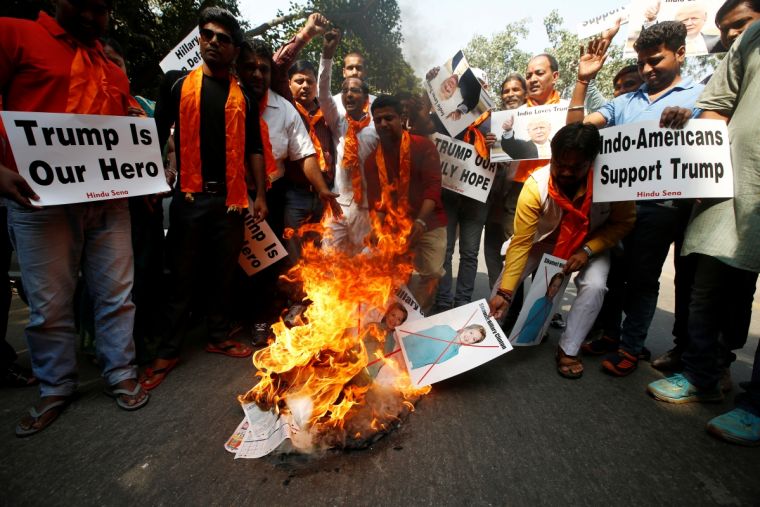
Nearly a quarter of a century ago, Hillary Clinton, then First Lady, spoke about the importance of her Christian faith and how it shaped her as a person.
Now The Washington Post has republished the interview, in which she gives particular credit to her Methodist youth minister Don Jones.
The New York Post recently claimed that Clinton had declared war on religious Americans.
But the interview shows a different side to the Democratic presidential nominee.
Clinton described how her father traced his Methodist roots through his own parents and grandparents in England and Wales.
Advertisement
"And then the church itself really appealed to me, because, well, the church I grew up in was very child-oriented, very supportive of kids in their early years as they tried to find their way through faith, not in a dogmatic way, but in a real open way in which anything could be discussed.
"No question was out of bounds.
"And I think that gave me a grounding in my faith that has sustained me. And the whole discipline of the Methodist church appeals to me, with the emphasis on scripture and reason and tradition and experience. So for both family and personal reasons it just made a real fit for me."
She said everyone on her father's side of the family was christened in the same small church in Scranton.
"It was a part of the real motivating force in our lives," she said.
One event that stood out was when Jones took some of the young people down to hear Martin Luther King Jr preach in downtown Chicago.
"It was a wonderful time for me," she said.
Her father was a Republican but she was impressed by the way he supported disadvantaged people – such as by helping them into employment.
She said she had "a burning desire" to make the world a better place for everybody.
She herself was a Republican until her first year when at Wellesley, 1965-66, when she was asked to be president of the college Republican Party but her views shifted to the left and she began moving towards the Democrats.
As regards her Christian practice, she said she went sporadically to church when in college and in grad school.
"I'd go to chapel at Wellesley and I'd go into town at Wellesley on occasion, and the same at Yale. I'd go to chapel or, I'd go to–there were a couple of small churches in New Haven that I really liked. There was a really small, beautiful episcopal church that I liked to go to."
She shopped around.
"It was mostly because I wanted to go to different services or I wanted to go to different churches because I heard that somebody was going to preach great sermon or some church had a great choir. So I was, yeah, just real open. And I knew that I wasn't going to be living in those communities when I graduated from college or law school so I kept my membership at home."
Her religious beliefs were not separate from her political beliefs.
"I've tried to lead an integrated life and so the spiritual, the emotional, the psychological, and physical, and all of that — I'm not there, I don't want to mislead you. But I'm trying very hard to have that be the primary purpose of my life. I want to feel as though I've led a coherent, integrated life.
"And the spiritual part of my life is a very important element to me in defining who I am and what I care about. It's a real benchmark, I mean, when I disappoint myself because of the way that I have treated somebody, or behaved, it's against a backdrop of believing that, you know, there's some effort I should make to try to be better than that, and it's something very personal with me."
She also said the search for meaning should cut across all kinds of religious and ideological boundaries.
"That's what we should be struggling about, not 'You have a corner on God and I don't' or 'You're the real true person and this other one isn't.'
"I mean, that is an unfortunate and in many ways destructive debate. What we ought to start from is a sense that I think is widely shared now in a lot of elements of society, which is that being economically prosperous, having a religious country, having most people able to participate in the market and have luxuries beyond their grandparents' wildest dreams and all of this stuff that we now have is not sufficient, or leading a meaningful personal life, or a meaningful community life."
Sponsored
Watch Your Favorite Christian Films, 24/7. Click Here To Start Your Free Trial TodayOriginal Article


